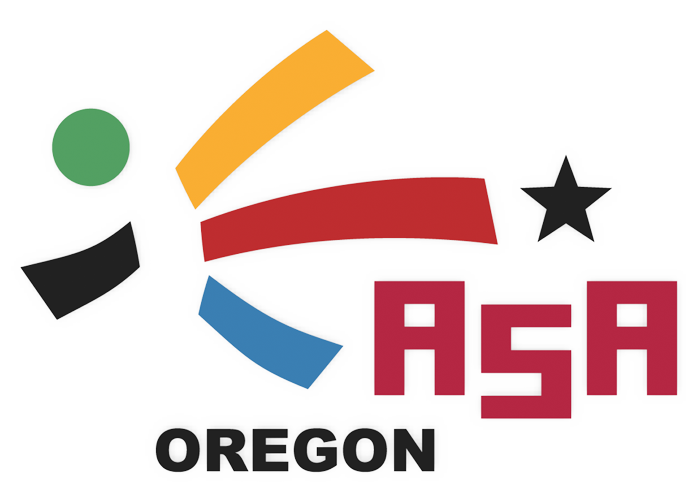Language
Improved communication skills
Learning a new language helps children communicate better with people who speak that language, which can help them develop better relationships with peers and adults alike.
Learning a new language is not only beneficial for communication, but it also enhances cognitive abilities, such as memory, problem-solving, and critical thinking skills. Research has shown that bilingual children tend to have better academic performance, as they are able to switch between different languages and understand different cultural perspectives. Additionally, learning a new language can broaden one’s cultural understanding, allowing children to appreciate and respect diversity. This can lead to improved social skills and empathy, which are essential qualities for building positive relationships with others. Furthermore, speaking multiple languages can provide a competitive advantage in today’s globalized world, as it opens up opportunities for international travel, work, and cultural exchange. Therefore, introducing children to different languages at a young age can have numerous benefits that extend far beyond just communication.
Cognitive benefits
Studies have shown that learning a second language can improve cognitive abilities such as problem-solving, critical thinking, and memory.
In addition to enhancing cognitive abilities, learning a second language has been linked to other significant benefits as well. Learning and using multiple languages requires the brain to constantly engage in complex cognitive processes, which may help to build and maintain neural connections. Furthermore, speaking a second language can also provide individuals with new perspectives and insights into their own language and culture, as well as other cultures.
Increased cultural awareness
Learning a new language can help children gain a better understanding and appreciation of other cultures, which can improve their ability to work and interact with people from diverse backgrounds.
In today’s globalized world, being able to work and interact effectively with people from diverse backgrounds is increasingly important. Learning a new language can play a crucial role in helping children develop the skills necessary to do so. By learning a new language, children not only gain the ability to communicate with people from different cultures, but also gain a deeper understanding and appreciation of those cultures. This can help them to develop empathy, respect, and a more nuanced perspective on the world. Additionally, research has shown that bilingual individuals may have an easier time navigating social situations and building relationships with people from different cultural backgrounds. By developing cross-cultural communication skills and cultural competency, children who learn a new language can become more adaptable and successful in a variety of personal and professional contexts.
Better academic performance
Learning a second language has been shown to improve academic performance in other subjects such as reading, writing, and math.
Learning a second language can improve academic performance in a variety of subjects, such as reading, writing, and math. For example, studies have shown that bilingual children tend to have better reading comprehension skills than monolingual children. This is because learning a new language requires children to develop strong phonemic awareness and decoding skills, which can transfer over to reading in their native language. Furthermore, learning a second language can also improve memory and attention, which are essential skills for academic success. In addition, bilingual individuals may have better problem-solving and critical thinking skills, which can also translate to better academic performance across multiple subjects. Learning a second language can provide children with a powerful set of tools to help them succeed academically and beyond.
Increased job opportunities
In today’s global economy, knowing a second language can be a valuable asset in the job market, and can open up more opportunities for future employment.
In today’s interconnected and globalized economy, being bilingual or multilingual is an increasingly valuable asset in the job market. Knowing a second language can provide a significant advantage for individuals seeking employment in a wide range of industries, such as international business, tourism, education, healthcare, and diplomacy, among others. In fact, many job postings today list bilingualism as a desired or required qualification for applicants. Additionally, knowing a second language can also open up opportunities for international travel, study abroad programs, and other experiences that can enhance one’s professional and personal growth.
Enhanced travel experiences
Knowing a second language can make travel experiences more enjoyable and meaningful, allowing children to better navigate new places and connect with locals.
Knowing a second language can enhance travel experiences for both children and adults alike. By speaking the language of the local people, travelers can not only better navigate new places and cultural norms but also gain a deeper understanding of the local customs, traditions, and way of life. This can help to foster a more meaningful connection with the local people and culture, and allow travelers to gain a more authentic and immersive travel experience. Additionally, knowing a second language can also help children to feel more confident and comfortable in new and unfamiliar environments, making them more likely to engage with the local people and participate in cultural activities. This can help to broaden their perspectives and deepen their understanding of the world around them.
Improved confidence
Learning a new language can boost children’s self-esteem and confidence, as they develop new skills and abilities.
Learning a new language can have a profound impact on a child’s development, not only in terms of their language abilities but also in terms of their self-esteem and confidence. As children begin to learn a new language, they are exposed to new sounds, words, and grammar, which can be both challenging and exciting. Through this process, they develop new skills and abilities, which can have a significant impact on their sense of self-worth.
Special Programs
Special programs at ASA guides students to become physically, mentally and socially well-rounded individuals.
